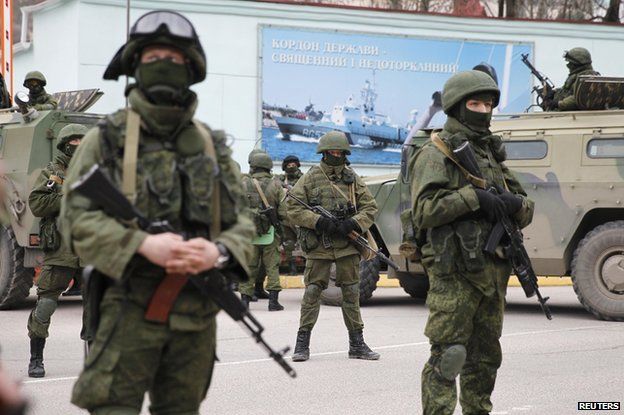
Russian Military Expert: Moscow Must Focus on Defending Itself Against Hybrid Wars
Publication: Eurasia Daily Monitor Volume: 15 Issue: 40
By:

The Vladimir Putin regime, which is generally given credit for coming up with the concept of “hybrid war” (“New Type Warfare”) and deploying it against other countries, is now struggling with another task: figuring out how to defend the Russian Federation from “hybrid war” attacks. On the one hand, the debate about this subject is, in the first instance, about refining the original concept of attacking others, so that Moscow would be able to overcome the defenses they may put up against hybrid war. But on the other, it is the recognition by the Kremlin that its approach may come back to haunt it and that Moscow must be prepared to counter “hybrid war” moves against Russia.
Discussions about both, the offensive and defensive aspects of hybrid war, have been a feature of Russian military thought since at least 2014. But if earlier Russian military theorists focused on the ways in which such tactics could be used offensively, they are increasingly devoting their attention to the defensive side of the equation. This is what Aleksandr Bartosh, a leading Russian military commentator, makes clear in an important new 3,700-word article in Nezavisimoe Voennoe Obozrenie that is significantly titled “Russia Cannot Avoid Hybrid Wars” (Nezavisimoe Voennoe Obozrenie, March 9).
Bartosh cites with approval the conclusions of retired Colonel General Leonid Ivashov that Russian military thinking must make “a breakthrough” if it is to defend the country against hybrid wars. “We still do not have any clarity as to what a hybrid war is and naturally there is no theory on this. And we do not have a strategy of countering it and how we can defend ourselves in the information field, the educational field, the scientific field, the military field and so forth,” Ivashov says.
In his essay, the commentator attempts to describe the current state of play in Russian discussions about the nature of defending against hybrid war moves by the United States and other countries. He argues that hybrid war, precisely because it has no clear limits, requires a fundamental reorganization of the Russian armed services and their involvement earlier and in more areas than they have ever been involved in the past. To the extent that happens, the most important consequence of the rise of hybrid wars around the world may very well be the militarization of security thinking in the Russian Federation and perhaps other countries as well—something that would change the nature not only of their foreign policies, but also their domestic ones, while the distinction between the two would become almost meaningless.
“The term ‘hybrid war’ unites a broad range of actions that are carried out by one’s opponent via the combination of the application of regular and irregular formations, with the simultaneous involvement of civilian components,” Bartosh says. That represents a radical shift in the nature of the military’s task if it is to defend the country against attack. That is especially important, because, as General Valery Gerasimov, the chief of the Russian General Staff, has written, hybrid wars can allow an opponent to deprive the country of its “sovereignty without seizing any territory.”
According to Bartosh, hybrid wars create conditions for coups and color revolutions, as has already happened in Ukraine. And this represents a development of Western strategy from the time of the Cold War, when it used ideological means to undermine Communist regimes. Now, he says, the United States has broadened its attack on Russia to include “worldview” issues, and that requires a more serious response. Furthermore, Bartosh argues that as long as nuclear weapons continue to play their restraining influence, both sides will use other mechanisms, including hybrid wars, to undermine one another.
Responding to these new kinds of threats, he continues, will require the acceptance of a new and broader definition of war, one that must form “the foundation of the strategy of the state as a whole and that of the construction of national armed forces in particular.” If hybrid war eliminates the divide between war and peace, then the military must be involved on both sides of that division, something that not everyone accepts, but that US military theorists are increasingly supportive of, he contends.
“The logic behind any strategy of opposing hybrid wars,” Bartosh writes, “must be built by taking into account the characteristics of uninterrupted conflicts and the nonlinear configuration of forces and possibilities characteristic of that.” He argues that it must meet the following “key tasks.” First, the military must stop focusing on control of territory alone and instead focus on control of key institutions on that territory. Second, it must have the capacity to move forces both territorially and functionally to the most vulnerable places. Third, it must carry out constant monitoring of the situation even when there is no apparent threat. And fourth, it must train officers to be able to display that kind of flexibility in the field.
In the North Atlantic Treaty Organization (NATO), the United Kingdom and the US, military theorists have devoted a great deal of attention to and reached some key conclusions on the nature of “hybrid military actions.” But in Russia, to this day, Bartosh says, there has been an incomplete incorporation of these ideas, especially with regard to defending against hybrid efforts. Instead, the Russian military talks about hybrid wars offensively, but generally ignores the task of defending Russia against their use by other powers. That must change, the military theorist posits, because the threat against Russia is all too real.



